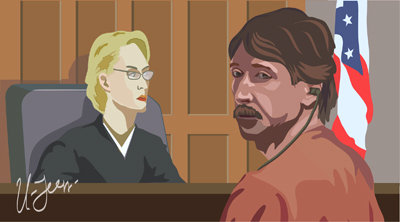MOSCOW, September 3 (RAPSI) – The defense team for Viktor Bout, a Russian national who is serving a 25-year sentence in Illinois for conspiring to kill Americans, will use a UN resolution on excluding a number of individuals from its sanctions list to protect their client, RIA Novosti reported on Thursday, citing attorney Alexei Tarasov.
On September 2, the UN Security Council adjusted Liberia sanctions, by renewing an arms embargo on non-state actors in Liberia for nine months but excluding 21 individuals and 20 legal entities from the sanctions list.
They include Viktor Bout who is serving a prison term in the United States, his brother Sergei, his partner Richard Chichakli and former President of Liberia Charles Taylor.
Tarasov said the decision to exclude Bout from the UN sanctions list could be used as newly discovered evidence in the Bout case.
The attorney said that although Bout’s sentence was unrelated to the UN sanctions, the prosecution used the fact repeatedly during his trial “to convince the court that Viktor Bout was a dangerous criminal.”
UN Security Council resolution S/RES/2237 (2015), which was adopted on September 2, terminated the travel and financial measures set out in paragraph 4 of resolution 1521 (2003) and paragraph 1 of resolution 1532 (2004) but has renewed the arms embargo with regard to all non-governmental entities and individuals operating in the territory of Liberia until 2 June 2016.
Viktor Bout was arrested in Bangkok in March 2008 and taken to the United States. In November 2011, he was convicted of conspiracy to murder US nationals, including military officers and employees, and of selling millions of dollars’ worth of weapons, including hundreds of portable surface-to-air missiles and over 20,000 AK-47s, to the Colombian rebel group FARC.
Bout has consistently denied the charges. Russia attempted to have him extradited from the US under the 1983 Convention on the Transfer of Sentenced Persons, but without success.
In June of this year, Bout filed a petition to have his case reviewed in light of newly discovered evidence.



